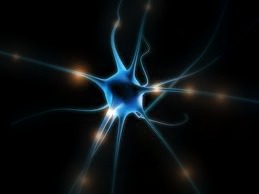GUT-BRAIN Connection. Can My Gut Affect My Brain?
 Monday, October 3, 2016 at 4:06PM
Monday, October 3, 2016 at 4:06PM I had a teacher see me for memory issues and fatigue. She had a very difficult time:
- focusing
- remembering new information
- making decisions
- staying on top of her tasks
- experienced brain fog and extreme tiredness.
Her brain symptoms and difficulty concentrating were so severe that she needed her partner to help her fill out the health history form. She is relatively too young for age related dementia, so what was causing this?
 Photo Credit Taylor Maley
Photo Credit Taylor Maley
Well it turns out this patient also has some digestive problems that new research shows can contribute to the brain symptoms. John Hopkins Center for Neurogastroenterology conducts research about how the Enteric Nervous System is key to the Gut and Brain relationship. This connection was important to my patient’s recovery. So what is the enteric nervous system?
The brain is controlled by two nervous systems, one is controlled by your brain (CNS Central Nervous System), the other is the Enteric Nervous System (ENS) which works separate from the brain. Think of it as a thin 100 million nerve cell network that coats your entire GI tract and sends “walkie-talkie” messages, commanding the GI tract to secrete enzymes, digest food, interact with microbes in the gut etc. What happens in the gut is then reported to the CNS (brain). So both the ENS (gut-brain) and CNS (brain-brain) talk to each other.
I’ve observed patients with GI problems often have more issues with mood, such as anxiety, stress and depression. I’ve also seen patient’s who often report that stress or emotions will worsen their GI problems.
So is it the chicken or the egg? BOTH.
The good news is that research is backing up the gut-brain relationship. Signals from a patients gut with GI issues are more inflammatory than those who are healthy. This explains how inflammatory chemicals can alter their brain chemistry.
A Harvard Medical School article links stress with increased perception of pain. On the flip side, the article also links patients with GI disorders with increased perception of pain. So perhaps both these issues alter the ENS (gut-brain) and CNS (brain-brain) causing disregulation in pain perception both emotionally as well as physically.
There are two things that you can do at home that can calm down your ENS (Enteric Nervous System):
- Deep Belly Breathing (tells mechanoreceptors in diaphragm to communicate with vagus nerve to calm your stomach and stress down)
- Applying gentle heat to the belly (tells temperature receptors to relax muscles in the gut, if you feel like it is all tensed up in a knott).
In my practice, I use advanced techniques that help to put the nervous system back in balance, like adjusting the dials on the stereo to the correct volume. These work deeply to release an old body memory stored out of compensation from a previous stressor (physical or emotional) and are specific to re-wiring your nervous system set points. You'll know you need re-setting especially if you've felt, "I was feeling fine until...".
My patient stopped her marathon 2 hr naps, was able to prepare her lessons as a teacher and said she had a much clearer mind after working together on healing her gut. If you are suffering from GI symptoms or Brain issues, please contact me and I would be happy to help you, or point you in the right direction. Stay tuned for Part II of the Gut-Brain connection in a few weeks.




